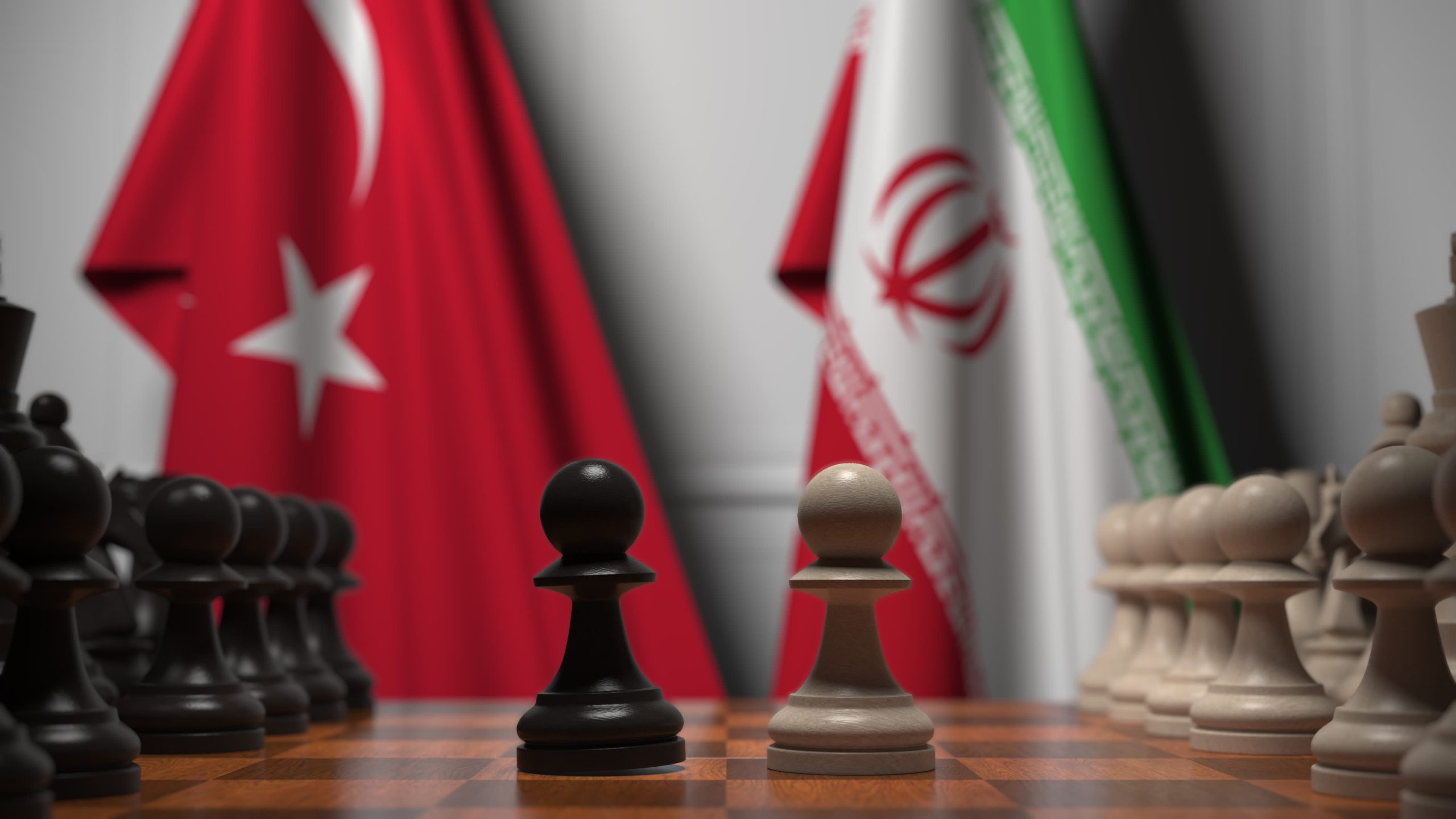Iran and Turkey are among the various regional countries who have shown interest in enhancing their influence in Afghanistan following the withdrawal of the US and the ascent of the Taliban to power. However, their different motivations and views regarding this issue are likely to exacerbate the differences between them.
While Turkey and Iran are both seeking to strengthen their influence in Afghanistan by pragmatically dealing with the Taliban, they are doing so for different motives. For Turkey, Afghanistan represents an opportunity to expand its sphere of influence, and accordingly the Turkish government has worked to open channels of communication with the Taliban. Turkey expressed on more than one occasion its desire to secure and manage Kabul Airport, a proposal that Turkey views as a means of strengthening its role and influence abroad, as it has done in Syria, Iraq and Libya, to portray itself as a major player on the regional level.
For Iran, however, the matter is related to national security. Afghanistan’s geographical proximity, and the demographic overlap between the two countries, has made unstable conditions there over the past decades a source of constant concern for Tehran. Iran opened channels of communication with the Taliban movement and established relations even before they took over. Former Iranian Foreign Minister Javad Zarif received a delegation from the Taliban in January 2021, and the head of the Iranian Supreme National Security Council, Ali Shamkhani, met during that same month in Tehran with Mullah Abdul Ghani Barader. Moreover, Tehran has exerted control over the Shiite Hazara minority inside Afghanistan, preventing it from participation in the resistance to the Taliban.
Sources of tension
There are a number of issues related to the situation in Afghanistan in which the conflict of interests between Iran and Turkey is likely to cause tensions between them, these include:
Dealing with refugees: A new wave of refugees exiting Afghanistan will pose a problem. It is estimated that Iran already hosts approximately 2.5 million registered and unregistered Afghans, and up to another million Afghans are expected to flow across the borders to escape Taliban rule. Such numbers impose a significant economic burden on Iran, at a time when it is suffering as a result of sanctions. Accordingly, Iran has tried to mitigate this problem by directing the influx of refugees towards Turkey. Most Afghan refugees cross through turkey to reach European Union countries, which prompted Turkey to build a wall along the border with Iran to prevent the flow of Afghan migrants. This will increase the burden on Iran and Pakistan.
Relations with Washington: Both Turkey and Iran wish to exploit ties with the Taliban to enhance their position vis-à-vis Washington. Ankara wishes to establish a role in Afghanistan in order to improve Turkish – American relations, while the United States may perceive that Turkey could act as its “proxy” in Afghanistan. Thus, Ankara is using the Afghan file to obtain diplomatic and economic concessions from Washington, on issues such as Turkey’s possession of the Russian S-400 missile defense system, Washington’s suspension of Ankara’s participation in the fighter jet manufacturing program The F-35, US support for the Syrian Kurds, as well as regarding the Islamic preacher Fethullah Gulen, who resides in the US, and whom Ankara accuses of being involved in the 2016 coup attempt.
On the other hand, Iran aspires to use the Taliban as a pressure card against Washington, and Iran’s ultimate interest in Afghanistan lies in its desire to replace the worrying American presence there with its own. Accordingly, Iran will not cooperate with Washington like Turkey, but will try to strengthen its relations with the Taliban, to establish a front against the US. Iran was therefore quick to open channels of communication with the Taliban, and recognized their government, building on the points they have in common, including their hostility towards the United States. This could pave the way for future strategic cooperation between them with the aim of harming American interests in the region.
Impact on Arab issues
It is likely that the strained relations between Turkey and Iran, in light of their conflicting interests in Afghanistan, will reflect on issues in the Arab world in which both countries are involved. This will not ease the complexity of Arab crises, especially in Syria and Iraq.
Iraq is likely to witness tensions and renewed competition between Turkey and Iran, especially in Northern Iraq, where Turkey has recently demonstrated support for the Kurdistan Regional Government against Iranian-backed militias effectively allied with the Kurdistan Workers Party (PKK). In return, Iran will use the Afghan Shiites to support and preserve its influence in Iraq, especially with the approaching date of the American withdrawal. Both Iran and Turkey will try to use their gains in Afghanistan to bolster their position in Iraq, which therefore will be an arena for their competition to establish regional influence.
In Syria, the Iranian-Turkish tensions that began with the Turkish attempts to militarily penetrate Idlib are likely to increase with the continued presence of Sunni jihadist groups in the region, which Iran considers a threat to its interests in Syria.
In conclusion, it can be argued that Iranian-Turkish competition to gain influence in Afghanistan under the rule of the Taliban is likely to cause tensions between the two countries, given their conflicting interests. The future of their bilateral relations will be influenced by the degree they are able to benefit from the situation on the ground, and their success in winning over the Taliban, as well as the regional policy that the Taliban will adopt. The Taliban, on its part, is seeking to take advantage of the competition between regional countries over Afghanistan. It has sent reassuring messages to Russia, China and Iran, and has a strong relationship with Pakistan, while reminding the Turkish government of the bonds of Islam and investment opportunities in reconstruction that could be available in the future.

